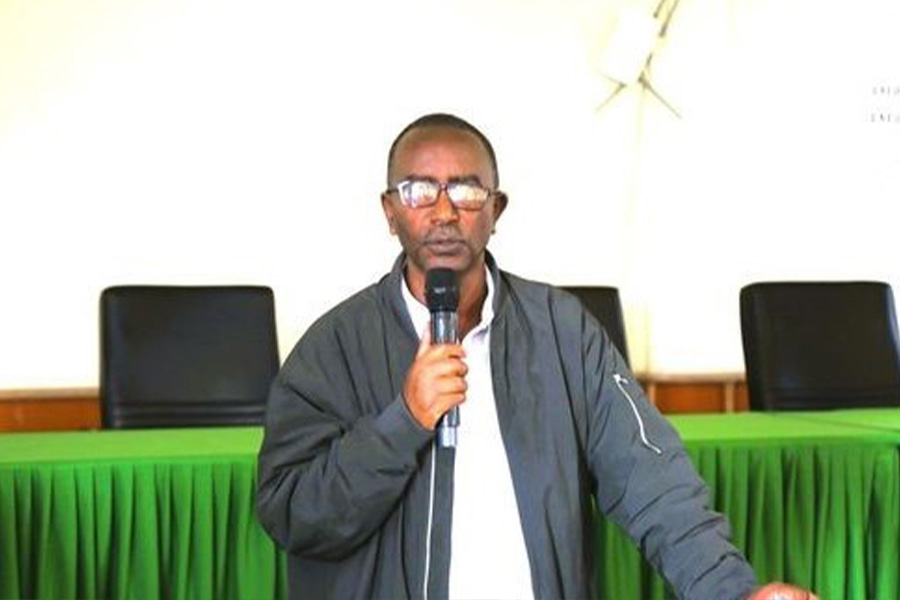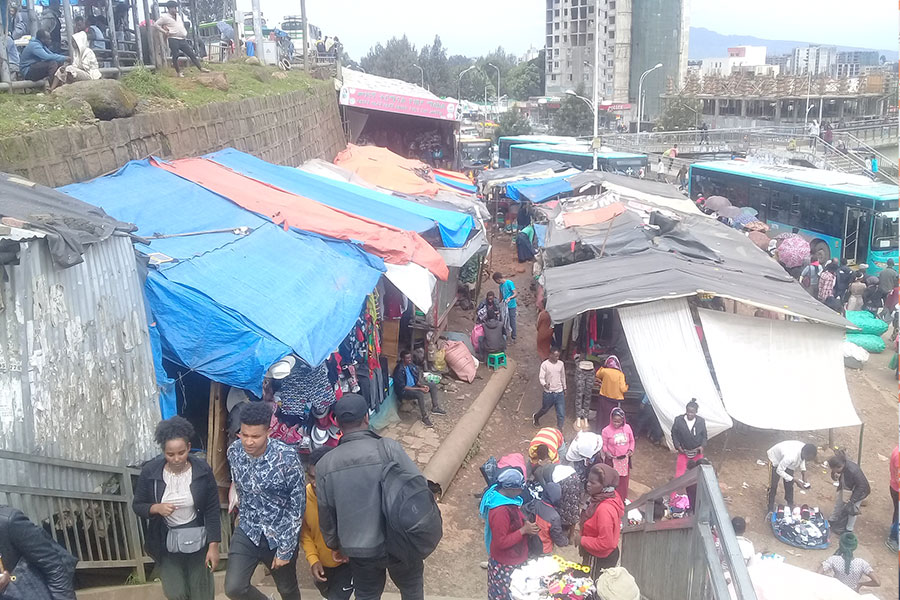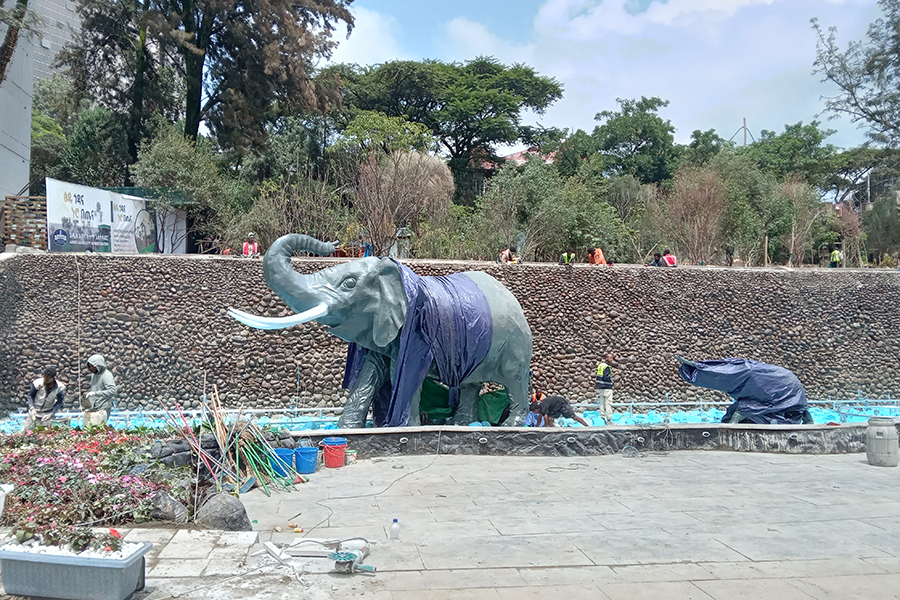
Fortune News | Jan 03,2025
A price valuation system on duties and taxes of steel and its manufacturing inputs is introduced by the Customs Commission, in response to persistent complaints from importers. The price is set to revision every 15 days to address discrepancies and conflicts over the accurate valuation of steel imports.
The amendment particularly affects imports arriving through partial letters of credit at different times with varying prices. Such shipments will now be taxed based on the latest pricing module compiled by the Customs Commission at the time of assessment.
Imports from countries that do not have a compiled data set on prices will be evaluated by reference to available prices from economic peers of the originating countries, as part of the bid to decrease mispriced items circulation.
According to Zerihun Assefa, communications director of the Commission, the change in policies stemmed from ongoing disputes between importers and officials on the precise pricing. He said the importers were subjected to higher duties as prices might have plummeted during the period of their shipments, while the government was losing significant revenues as prices were lower than those found at the Commission's item module.
"We say one thing, they say another," he said, insisting on the need for a transparent system.
The Commission relies on the Electronic Customs Valuation System (ECVS-G2 module), developed by the Indian state-owned Centre for Development of Advanced Computing (C-DAC) with an investment of 203,000 dollars. Yet, importers had been facing higher duties when prices dropped during the shipment period, leading to revenue loss for the government as declared values fell below those in the Commission's item module.
Ethiopia annually imports approximately 600 million dollars worth of steel, with nearly 240 manufacturers struggling to meet local demand as pressures of foreign currency and imports through novel methods of contraband crowd the market.
According to Wondimu Adise, a legal expert at the Ministry of Revenues, updating legal tax frameworks is necessary to adapt to emerging trends in the business landscape.
"The principle is always fair taxation at proper prices," he said.
Industry insiders are concerned. Workeneh Tesfaye, general manager of Tsehay Industries, expressed concerns about the complications arising from the 15-day rotating price system. He fears the extended shipping times, coupled with the lagged logistics capabilities could complicate customs procedures.
The company, which operates out of the 10hct plant in the former Qality Metal Products Factory 20Km southeast of Addis Abeba relies on significant imports for production from Turkey, China and Ukraine for its operations. While acknowledging the effort to equate price evaluation standards with peer economies, Workeneh urged for comprehensive reforms in the assessment of prices and reliable price submissions by importers to ensure long-term clarity and decrease potential areas of disagreement.
"Not everyone is under-invoicing prices," he told Fortune.
A pervasive foreign currency shortage has led to most steel manufacturers operating at much lower than their capacity while they continue to face challenges from imports contraband and constant back and forth at the customs commission.
Ethiopia has constantly underperformed in global logistics rankings, with the last global performance index ranking the country at 126 from 167 countries. It spurred the country to aspire for improvement of its ranking to the top 40 countries with digitisation and better customer service with little success so far.
Despite the move towards a more dynamic pricing system, customs procedures lack reference to international benchmarks and need improvements in the competence of staff responsible for price revisions.
Samson Tsedeke, lead consultant at Multilink Consulting, identifies the lack of references to international benchmarks as laid out in agreements like the General Agreement On Trade and Tariffs (GAAT) or inadequately accessing the available tools within the World Customs Organisation (WCO) as one of the main reasons for Ethiopia's underdeveloped customs procedure.
"They can make the appeal process transparent," he said.
Samson points out that constantly referring to higher prices when evaluating items of unknown origin is also a point of contention for any category of item.
While he welcomed the initiative to renew price listings every 15 days, the need for more comprehensive reforms in the assessment of prices and more reliable price submissions by importers for a long-term decrease in potential areas of disagreement was deemed critical by the consultant.
PUBLISHED ON
Jan 07,2024 [ VOL
24 , NO
1236]

Fortune News | Jan 03,2025

Radar | Sep 03,2022

Featured | Jun 15,2025

In-Picture | Jul 28,2024

Radar | Jul 29,2023

Viewpoints | Jul 27,2024

News Analysis | Jan 19,2024

Viewpoints | Oct 26,2024

Radar | May 04,2024

Radar | Dec 07,2019

Dec 22 , 2024 . By TIZITA SHEWAFERAW
Charged with transforming colossal state-owned enterprises into modern and competitiv...

Aug 18 , 2024 . By AKSAH ITALO
Although predictable Yonas Zerihun's job in the ride-hailing service is not immune to...

Jul 28 , 2024 . By TIZITA SHEWAFERAW
Unhabitual, perhaps too many, Samuel Gebreyohannes, 38, used to occasionally enjoy a couple of beers at breakfast. However, he recently swit...

Jul 13 , 2024 . By AKSAH ITALO
Investors who rely on tractors, trucks, and field vehicles for commuting, transporting commodities, and f...

Nov 1 , 2025
The National Bank of Ethiopia (NBE) issued a statement two weeks ago that appeared to...

Oct 25 , 2025
The regulatory machinery is on overdrive. In only two years, no fewer than 35 new pro...

Oct 18 , 2025
The political establishment, notably the ruling party and its top brass, has become p...

Oct 11 , 2025
Ladislas Farago, a roving Associated Press (AP) correspondent, arrived in Ethiopia in...